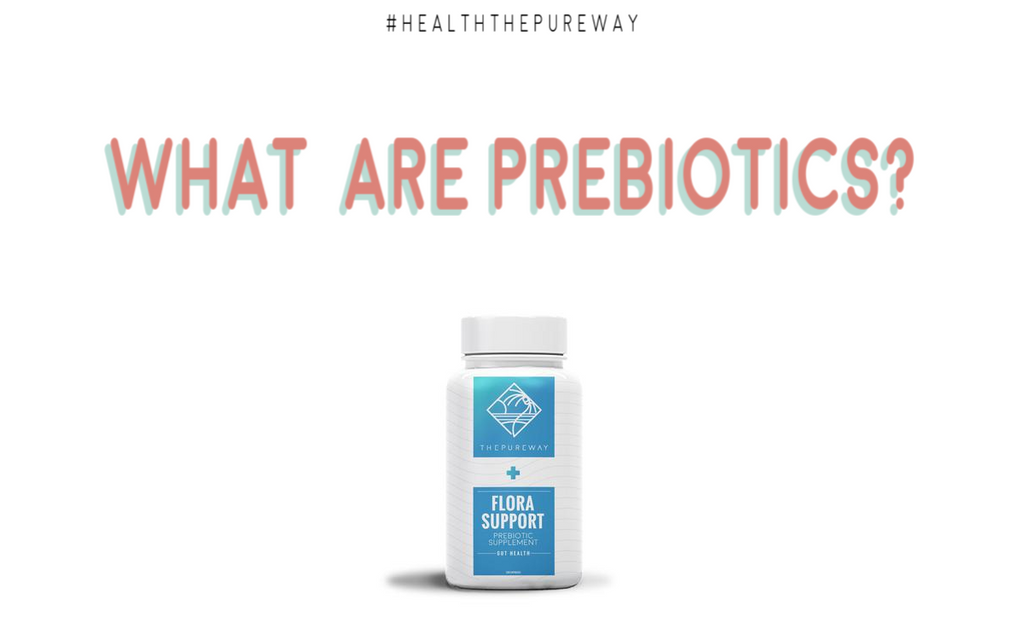Microbiota, the Best Prebiotic, and You.
It is widely accepted by science and tradition alike that the health of our gut is vital to our overall health.
Our gut is one of the only places in the body where we voluntarily take in elements from the outside world. It was designed to utilize bacteria to fight off pathogens.
That bacteria is what we call our "microbiota."
The Human Microbiota
The human gut microbiome is a sensitive environment.
Before we had regular access to things like antibiotics and refined foods—when we ate a whole foods diet straight from our planet—our stomachs evolved to be fortified and teaming with good bacteria to help assimilate nutrients, break down foods, and fight off pathogens in our diet.
More and more research is being conducted to find out exactly what part the microbiota play in our bodies, but there's a ton of information out there pointing to the imbalance of our microbiota being directly connected to serious gut health issues like food allergies, acid reflux, and GERDs disease.
In fact, in a study by the National Institute of Health that compared the human microbiota with other species, it was found that the human gut was “extreme” and impacted largely by environment.
They found that although “individual humans are about 99.9% identical to one another in terms of their host genome…[they] can be 80-90% different from one another in terms of the microbiome of their...gut.” This finding is being studied for the use in more personalized health care.
There are 10-100 trillion symbiotic microbial cells living in a person’s gut, these trillions of cells are totally different than the person sitting next to them, or the person that they’re dating (maybe this gives a new definition to opposites attract?).
When we take antibiotics, eat foods that lack real nutrition, and are working with chronic stress (Oh, hello 2019), we’re having a negative impact on our own, unique microbiome.
The good news is, this is something we can work on.
Probiotics vs Prebiotics
There are two ways to actually improve the health of your microbiome. Prebiotics and Probiotics
Probiotics?
We talked about this in a previous article so we won’t go into detail here, but probiotics help to add good bacteria back into your gut. Probiotics like those found in good supplements or in fermented foods like kimchi or kombucha (my personal fav) are those bacteria that help your body fight off pathogens from our environment and find its own balance.
What are Prebiotics?
In short, prebiotics feed the unique microbiome that you already have. Here's the nitty gritty for you though...
Prebiotics are for Your Gut Health
When I suggest prebiotics to people, I often get a response along the lines, “I’m already taking a probiotic, why should I add another gut health supplement?”
Remember when I told you that your gut microbiome could be 80-90% different than your neighbors?
That’s where prebiotics come in.
While your probiotic is acting as a front line, jump start defense, your prebiotics are feeding the gut army that is unique to your health.
Prebiotics are the rations you give to your belly-soldiers so that they can hold the line over time.
Who Should Take Prebiotics?
Heh, contrary to popular belief, we don't say "everyone" for prebiotics because not everyone needs it.
It’s likely that no one in the world has the same gut balance as you do. If you're working on your gut health, especially if you're taking prescribed probiotics, and you want to be super duper unique and feel your best, a prebiotic is the way to go on your journey.
If your diet is healthy and you get enough prebiotic in your diet, you probably don't need this kind of supplement.
What are Prebiotics Made of?
So if prebiotics feed your probiotic microbiota, what do those bacteria eat?
Fiber.
The best prebiotic fibers are indigestible in the gut and aren’t fermented until they reach your colon.
You’re probably already eating some of these in your regular diet—onions, raw garlic, dandelion greens, apple (specifically the skins), and bananas are all prebiotic in nature.
If you’re feeling like you aren’t getting enough, you can try adding mix in a chicory root powder to your morning coffee (it’s super yummy and its 65% fiber).
You could also add a prebiotic supplement to your daily routine.
The Best Prebiotic Supplement: Flora Support
Our prebiotic supplement is predominantly derived from chicory root—which is one of the most notable, natural prebiotics available to our species.
We don’t just package up organic chicory, oh no. We focus our efforts on concentrating the prebiotic effect by extracting the beta-glucan and inulin, both of which are long-chain polysaccharides that break down in the lower GI.
This offers your body easier access to the health promoting prebiotic activity.
The arabinogalactan, another starch that ferments in the intestinal tract, in our prebiotic is derived from the larch tree and in addition to feeding your good bacteria, is known to help boost immunity and protect the liver over time.
Get your Prebiotic!
Do you take a prebiotic supplement? Share your journey in the comments below!
References
https://www.webmd.com/vitamins/ai/ingredientmono-974/larch-arabinogalactan
https://www.ncbi.nlm.nih.gov/pmc/articles/PMC3426293/
https://www.prebiotin.com/foods-containing-prebiotics/
https://www.mayoclinic.org/prebiotics-probiotics-and-your-health/art-20390058
Image


0 comments